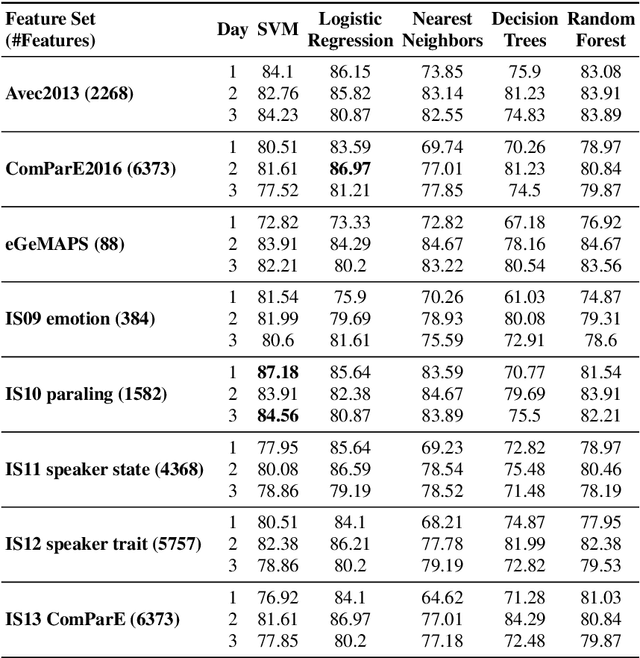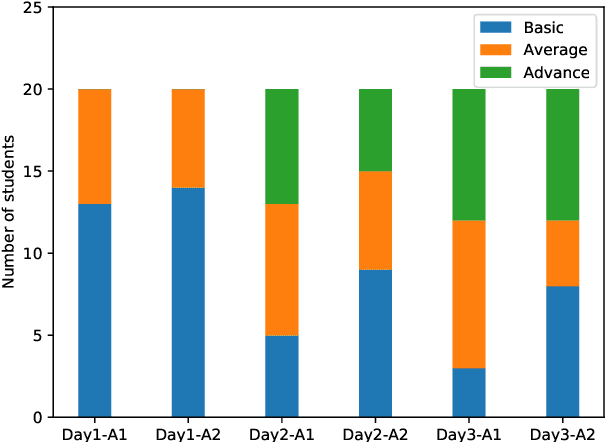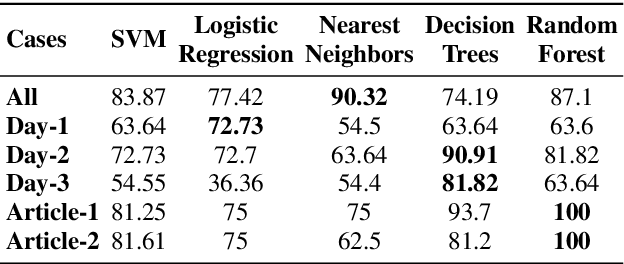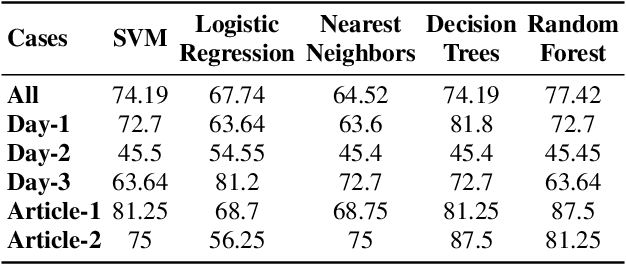Santosh Kumar Barnwal
A Framework for Learning Assessment through Multimodal Analysis of Reading Behaviour and Language Comprehension
Oct 22, 2021



Abstract:Reading comprehension, which has been defined as gaining an understanding of written text through a process of translating grapheme into meaning, is an important academic skill. Other language learning skills - writing, speaking and listening, all are connected to reading comprehension. There have been several measures proposed by researchers to automate the assessment of comprehension skills for second language (L2) learners, especially English as Second Language (ESL) and English as Foreign Language (EFL) learners. However, current methods measure particular skills without analysing the impact of reading frequency on comprehension skills. In this dissertation, we show how different skills could be measured and scored automatically. We also demonstrate, using example experiments on multiple forms of learners' responses, how frequent reading practices could impact on the variables of multimodal skills (reading pattern, writing, and oral fluency). This thesis comprises of five studies. The first and second studies are based on eye-tracking data collected from EFL readers in repeated reading (RR) sessions. The third and fourth studies are to evaluate free-text summary written by EFL readers in repeated reading sessions. The fifth and last study, described in the sixth chapter of the thesis, is to evaluate recorded oral summaries recited by EFL readers in repeated reading sessions. In a nutshell, through this dissertation, we show that multimodal skills of learners could be assessed to measure their comprehension skills as well as to measure the effect of repeated readings on these skills in the course of time, by finding significant features and by applying machine learning techniques with a combination of statistical models such as LMER.
Analyzing Effect of Repeated Reading on Oral Fluency and Narrative Production for Computer-Assisted Language Learning
Jun 25, 2020



Abstract:Repeated reading (RR) helps learners, who have little to no experience with reading fluently to gain confidence, speed and process words automatically. The benefits of repeated readings include helping all learners with fact recall, aiding identification of learners' main ideas and vocabulary, increasing comprehension, leading to faster reading as well as increasing word recognition accuracy, and assisting struggling learners as they transition from word-by-word reading to more meaningful phrasing. Thus, RR ultimately helps in improvements of learners' oral fluency and narrative production. However, there are no open audio datasets available on oral responses of learners based on their RR practices. Therefore, in this paper, we present our dataset, discuss its properties, and propose a method to assess oral fluency and narrative production for learners of English using acoustic, prosodic, lexical and syntactical characteristics. The results show that a CALL system can be developed for assessing the improvements in learners' oral fluency and narrative production.
 Add to Chrome
Add to Chrome Add to Firefox
Add to Firefox Add to Edge
Add to Edge